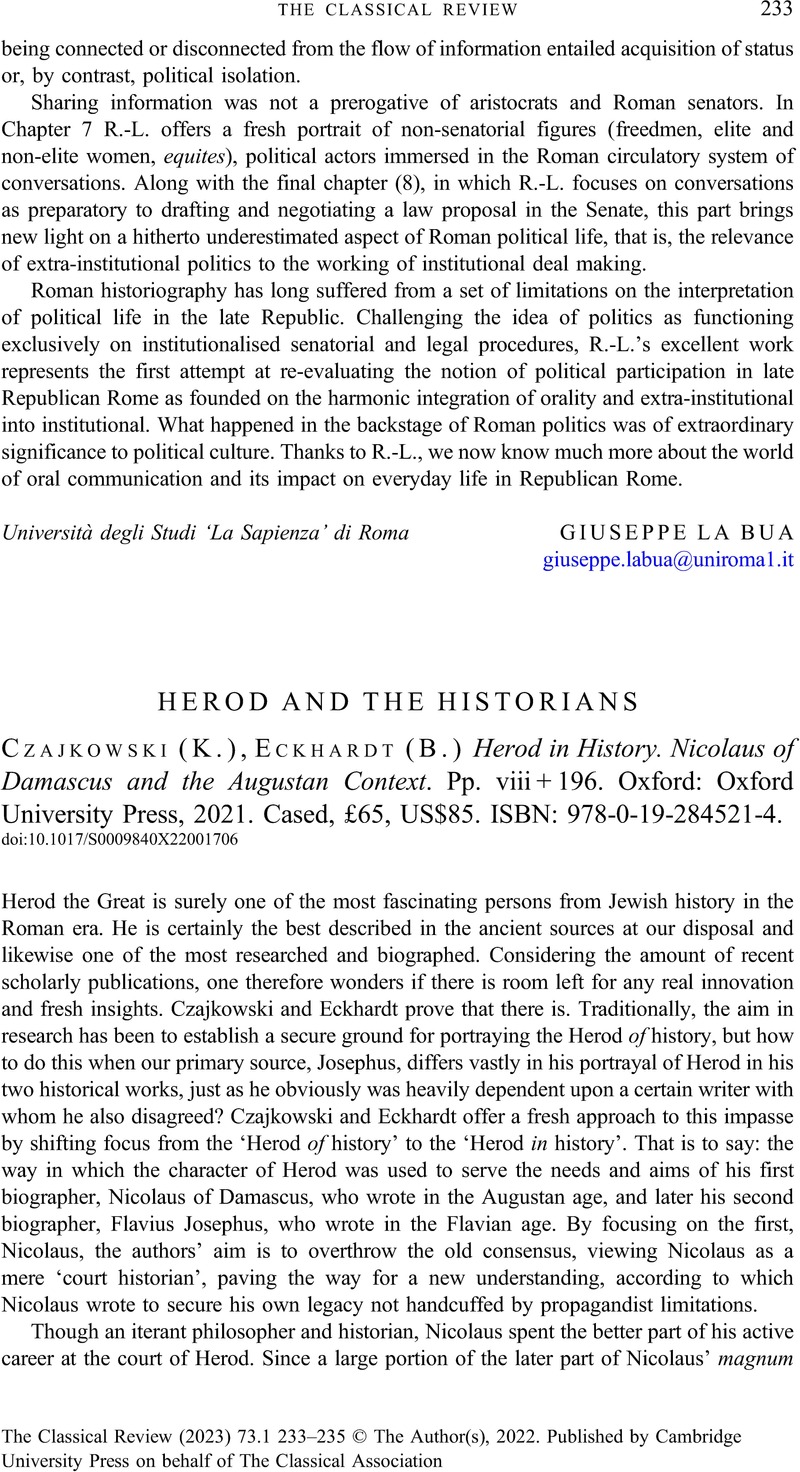No CrossRef data available.
Article contents
HEROD AND THE HISTORIANS - (K.) Czajkowski, (B.) Eckhardt Herod in History. Nicolaus of Damascus and the Augustan Context. Pp. viii + 196. Oxford: Oxford University Press, 2021. Cased, £65, US$85. ISBN: 978-0-19-284521-4.
Review products
(K.) Czajkowski, (B.) Eckhardt Herod in History. Nicolaus of Damascus and the Augustan Context. Pp. viii + 196. Oxford: Oxford University Press, 2021. Cased, £65, US$85. ISBN: 978-0-19-284521-4.
Published online by Cambridge University Press: 11 August 2022
Abstract
An abstract is not available for this content so a preview has been provided. Please use the Get access link above for information on how to access this content.

- Type
- Reviews
- Information
- Copyright
- Copyright © The Author(s), 2022. Published by Cambridge University Press on behalf of The Classical Association



